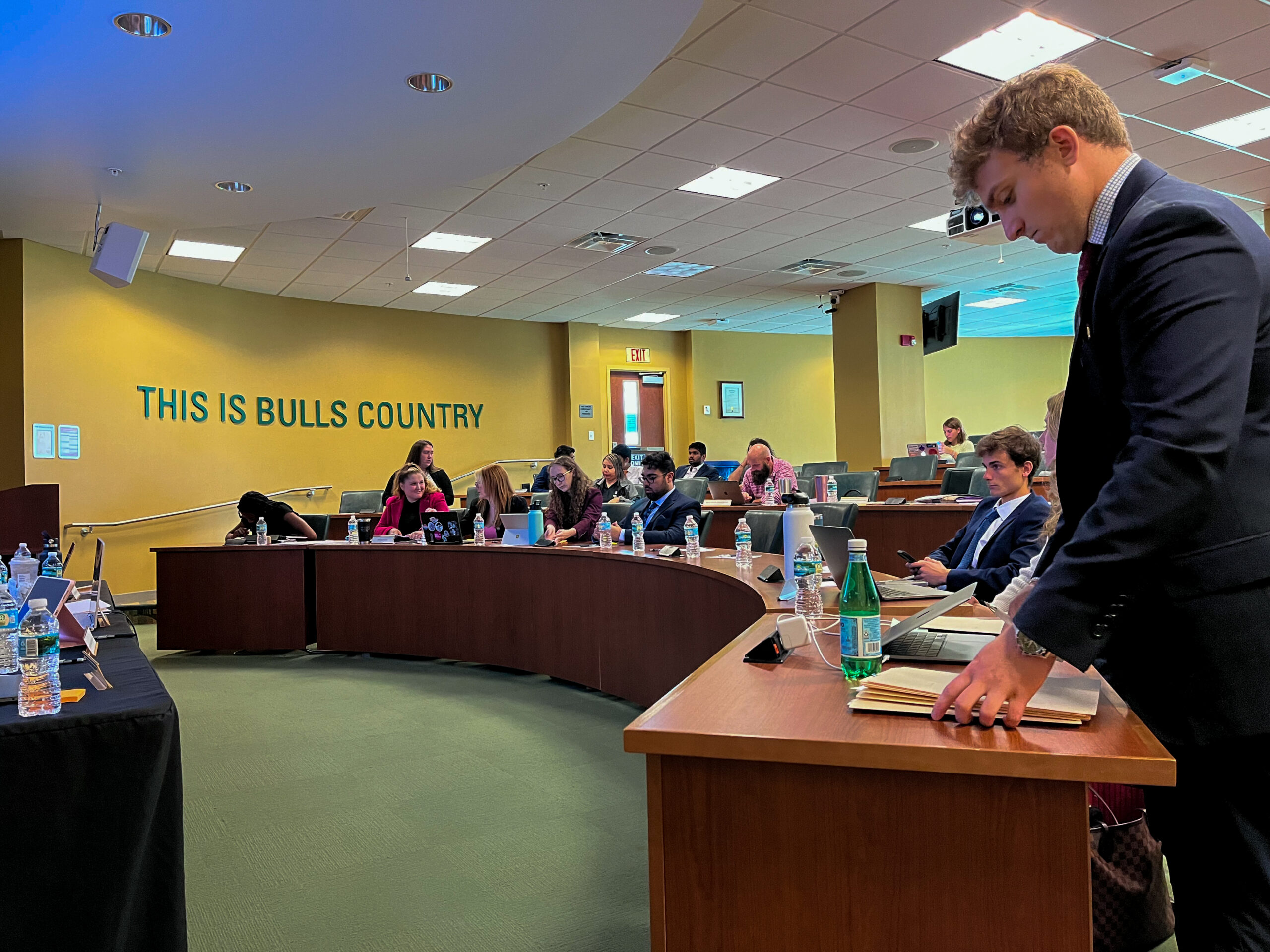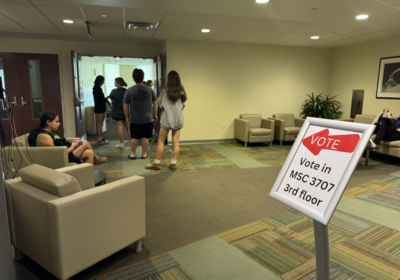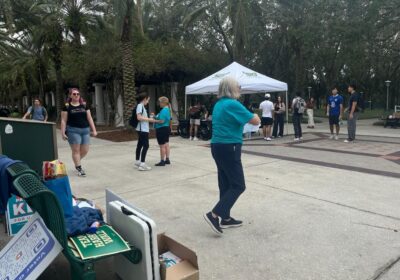SG Supreme Court rules against Solano and Malanga

The Student Government (SG) Supreme Court ruled in favor of the prosecution on Friday in the case of the Election Rules Commission (ERC) v. Solano and Malanga.
In its ruling, the court found that it has been proved beyond a reasonable doubt that SG president and vice president-elect Sebastian Solano and Jessica Malanga set up and operated an unauthorized polling station. There was no mention of any reprimands Malanga and Solano will face or how it may affect the election in the decision.
An initial hearing on the case took place on April 16 after the ERC filed two grievances against Malanga and Solano on March 1 for the violation of statute 706.5.8.8.5. – which refers to the creation or operation of an unauthorized polling station, according to the official decision released by SG.
The grievances were filed after witnesses saw Malanga and Solano erect tables outside of The Hub and the Recreation and Wellness Center, where the ticket offered flyers and drinks to students walking by, according to the decision report. Opposing presidential candidate Cesar Esmeraldi was also called to the scene by one of the passersby, according to the decision.
Flyers handed out by the defendants directed students to a QR code leading to the SG voting site. The prosecution argued it constituted an unauthorized polling station and the defense characterized it as part of the campaigning process.
Siding with the prosecution with a vote of 6-0-1, the court found that Solano and Malanga had set up and operated an unauthorized polling station, which they defined as any polling station that is not set up or operated by ERC staff or SG employees, according to the report. The court’s definition also included any polling station operated by a campaign ticket.
In its decision, the court also set out to answer three questions, including whether the regulations prohibiting an unauthorized polling station were clearly conveyed in the SG statutes and if they were clearly outlined by external resources. Lastly, they considered if the information Malanga and Solano had been given was enough to deter the event.
Though the court determined the regulations were not clearly conveyed in the statutes due to ambiguity and lack of physical descriptors of authorized polling stations, they also determined that the external resources available did outline these regulations. These external resources included Canvas courses given to the candidates, mandatory informational sessions and communications with persons holding authority in the ERC.
The court found that the defendants had enough information to deter the construction of the unauthorized polling station. Recognizing the statutes had fallen short, the court stated external resources were sufficient for the defendants to differentiate an authorized and an unauthorized polling station.
The court also referred to an email sent to SG Supervisor of Elections Laura Shaw by Solano, in which he asked Shaw if the event the ticket was planning constituted bribery. In the email, Shaw confirmed it would not be considered as bribery, advised Solano to refer to SG statutes and asked him not to ask for votes in the event. The email, however, excluded mentions of the QR codes and where they led.
Though the defense argued this email was a form of approval for the event, the court found the alleged approval to be irrelevant due to its vagueness. Taking the precautionary steps of contacting authority figures within the ERC showed the defense’s knowledge and ability to use outside resources, the court found.
When making their decision, the court took into account all its findings including “sufficient” evidence to show the defendants knew what a polling station was and that they had and were aware of unambiguous resources on the topic, according to the report. They also considered if the information at the defendants’ disposal – when properly heeded – should have dissuaded them from tabling in that way.
The court also ordered the SG Senate to further define what comprises a polling station in their decision.







